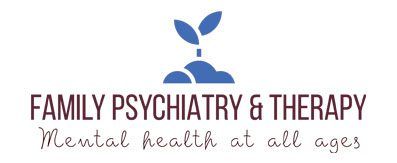When it comes to finding effective treatment methods for depression, every person is different. While medications are widely used to treat the mood disorder, they may not be effective in everyone. Some people may not even want to consider turning to medication at all, and will seek alternative options to help them manage their disorders. We’ve put together some drug-free options for managing depression. This list is not meant to replace the opinion of a medical professional, but these methods, or a combination of them, may work to relieve symptoms of and treat depression, so that you can live a healthier, happier life.
Exercise
Have you ever wondered why you feel happy, or even euphoric, after a tough workout? It’s thanks to endorphins, which are chemicals in your brain that trigger those feelings. By interacting with certain areas in your brain, endorphins can work to dull your perception of pain, almost like a sedative. But unlike a sedative, endorphins will not lead to dependence. In addition to releasing endorphins, regular exercise can help you sleep better, boost self-confidence, feel more relaxed, and combat symptoms of anxiety and depression.
Setting Goals and Creating a Routine
It’s easy to let little things like doing laundry or showering fall by the wayside when dealing with depression. You can fight against your mental illness by setting small goals like making your bed in the morning. Each day, set an intention to accomplish something that you wouldn’t normally have the willpower to tackle, whether that’s doing something you love or completing an everyday task. Those small goals can eventually turn into healthy habits. By establishing a routine, you’ll be able to keep up with everyday life and help manage your symptoms.
Meditation
Meditation is geared not towards blocking out negative thoughts or clearing your mind, but instead towards growing aware of those feelings and thoughts that cause you pain. The wonderful thing about this option is that there are seemingly endless ways to practice meditation. Whether you choose to try a group class or sit alone to practice, the end goal is to prepare your brain for these negative thoughts while realizing that you don’t have to act on them. If you’re curious about how meditation can help ease your symptoms, you can even pull up a guided meditation video online to get your feet wet and see if it might be for you.
Change in Diet
The old adage that, “you are what you eat,” has some truth to it. If your diet consists exclusively of high-fat dairy products, sweets, processed meats, and pasta, you’ll probably feel unhealthy and slow. If you tend to eat lean proteins and a lot of fruits and vegetables, you’re more likely to find yourself living a healthier life. Your diet has a lot of effect on your mental health as well–studies associate a healthy diet with a lower incidence of depression symptoms. But that doesn’t mean you have to cut out chocolate and bread entirely to make a difference; the key is everything in moderation. Start with getting your recommended daily intake of fruits and veggies, and don’t beat yourself up for indulging in dessert once in a while. Talk with your mental health provider or a nutritionist. You may find that making some changes to what you eat goes a long way in helping you feel better mentally.
Therapy
Depending on the severity of depression, therapy can be a helpful, healing option for getting help with symptoms. Individual therapy, also referred to as psychotherapy, allows patients to explore their thoughts, emotions, and behaviors through one-on-one work with a trained therapist. These sessions provide a safe, confidential environment in which you can air your fears and worries, and work on managing and overcoming your symptoms. For mild to moderate depression, therapy sessions can be effective. Major depression may require medication in addition to psychotherapy.
Biofeedback
Biofeedback is an alternative, drug-free therapy that uses computer analysis to provide “feedback” about certain physical characteristics of your body. For instance, a biofeedback session might monitor your heart rate, hand temperature, muscle tension, or blood pressure. From there, a trained therapist will help you learn to develop and exercise greater control over what are usually seen as involuntary processes. As you become aware of these bodily processes, you’ll begin to recognize how the symptoms of depression manifest within your body. The goal of biofeedback therapy is for you to learn to control these “involuntary” symptoms, leading to better health, improved mood, and an overall better quality of life.
Learn More About Depression with Family Psychiatry and Therapy
At Family Psychiatry and Therapy, we’re dedicated to creating a customized treatment plan that works best for you. Even the most severe cases of depression can be treated; it just comes down to identifying the best options. We know that pharmaceutical solutions are not always the best answer to mental health issues. From biofeedback to group therapy, we offer a variety of services that can help manage and treat your symptoms, so that you’re free to live your healthiest life. Contact us today to find out more about how our medical professionals can help.



